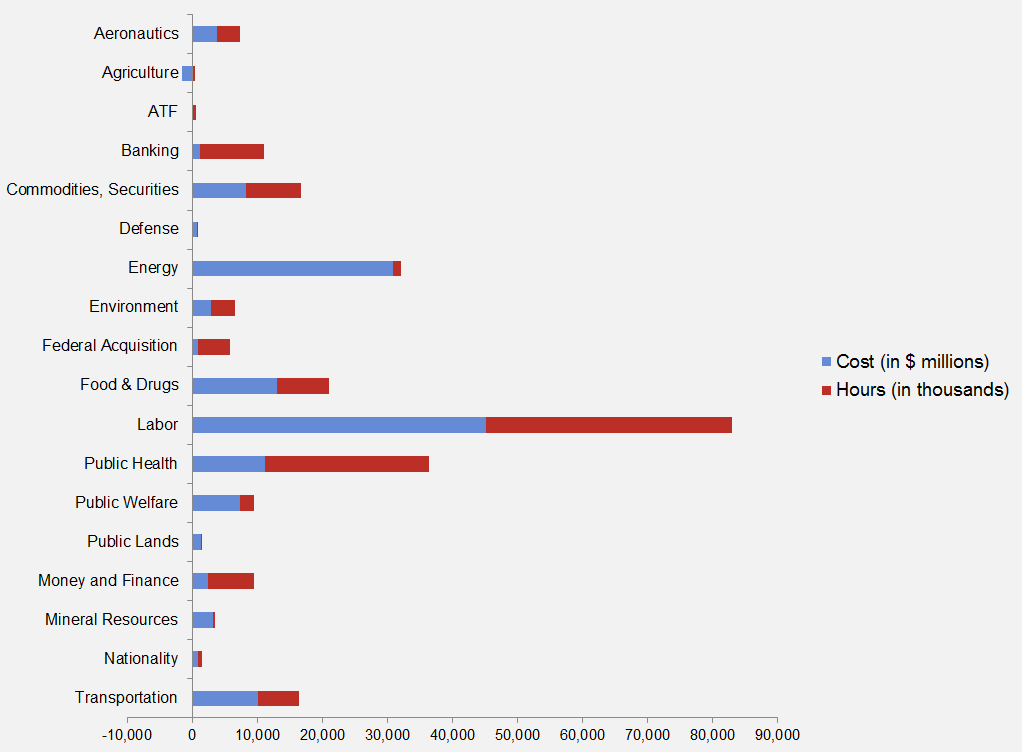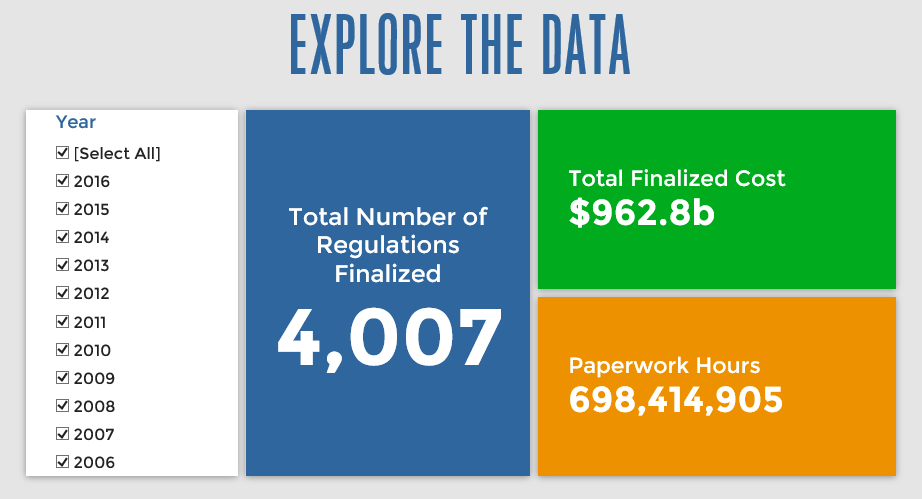Week in Regulation
September 12, 2016
Passing $100 Billion
Regulators added more than $6.6 billion in costs this week, led by the administration’s final “Head Start Performance Standards.” Annualized costs were $1.1 billion, compared to $3.3 billion in benefits; paperwork grew by 1.1 million hours. This week pushed final costs for the year past $105 billion. The per capita regulatory burden for 2016 is $448.
Regulatory Toplines
- New Proposed Rules: 46
- New Final Rules: 65
- 2016 Total Pages of Regulation: 62,602
- 2016 Final Rules: $105.69 Billion
- 2016 Proposed Rules: $39.5 Billion
The American Action Forum (AAF) has catalogued regulations according to their codification in the Code of Federal Regulations (CFR). The CFR is organized into 50 titles, with each title corresponding to an industry or part of government. This snapshot will help to determine which sectors of the economy receive the highest number of regulatory actions.
The Department of Health and Human Services (HHS) finalized its revised Head Start Performance Standards, aimed at improving the school readiness of young children. Ten-year present value costs of the measure are $5.6 billion, with annualized burdens of $599 million, in addition to more than one million paperwork burden hours. The administration also acknowledged, “as many as 7,372 teachers, assistant teachers, and home visitors could no longer by employed.”
The Department of Transportation (DOT) proposed a rule to limit the speed of heavy-duty vehicles. The goal is to improve safety and reduce the severity of crashes. The proposal set a range of top speeds from 60 to 68 miles per hour (MPH); the 65 MPH limit would impose annual costs of $523 million. Benefits derive from increased safety and fuel savings, up to 423 million gallons or $1.3 billion in reduced fuel expenditures. Total annual benefits approach $3.3 billion.
The Food and Drug Administration (FDA) finalized a rule to essentially ban anti-bacterial soap. The rule notes these products are generally not recognized as effective, at least compared to normal soap. The total costs of the measure exceed $402 million. The benefits are from the reduction of 2.2 million pounds of antiseptic soap annually.
Affordable Care Act
Since passage, based on total lifetime costs of the regulations, the Affordable Care Act has imposed costs of $48.5 billion in final state and private-sector burdens and 171.4 million annual paperwork hours.
Dodd-Frank
Click here to view the total estimated revised costs from Dodd-Frank; since passage, the legislation has produced more than 74.8 million final paperwork burden hours and imposed $36.3 billion in direct compliance costs.
Total Burdens
Since January 1, the federal government has published $145.2 billion in compliance costs ($105.69 billion in final rules) and has imposed 123.3 million in net paperwork burden hours (87.9 million from final rules). Click below for the latest Reg Rodeo findings.












